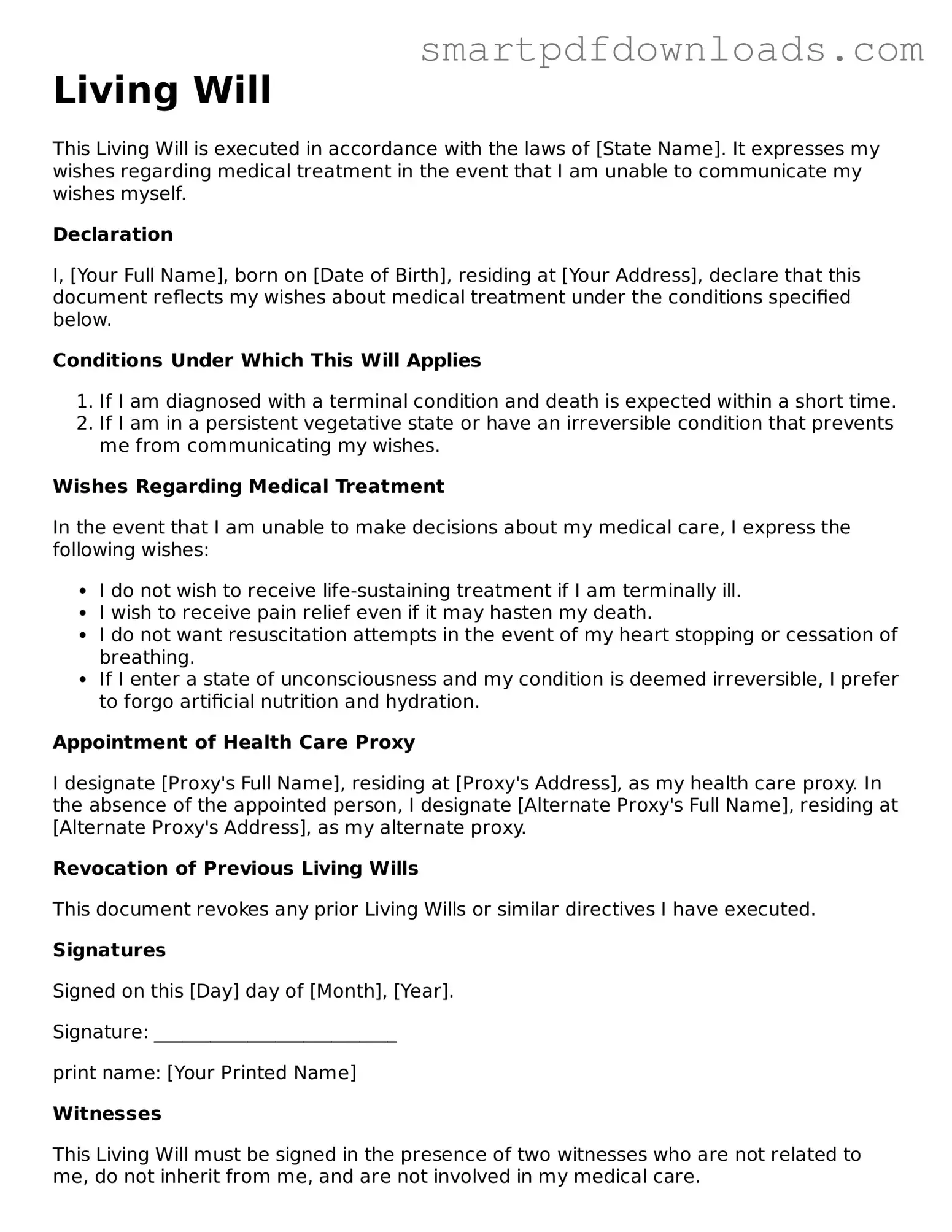Free Living Will Form
A Living Will is a legal document that outlines your preferences for medical treatment in case you become unable to communicate your wishes. It serves as a guide for healthcare providers and loved ones, ensuring that your values and desires are respected during critical moments. Understanding this form is essential for anyone who wants to have a say in their medical care when they cannot speak for themselves.
Edit Living Will Online

Free Living Will Form
Edit Living Will Online

Edit Living Will Online
or
⇓ PDF File
Finish the form and move on
Edit Living Will online fast, without printing.